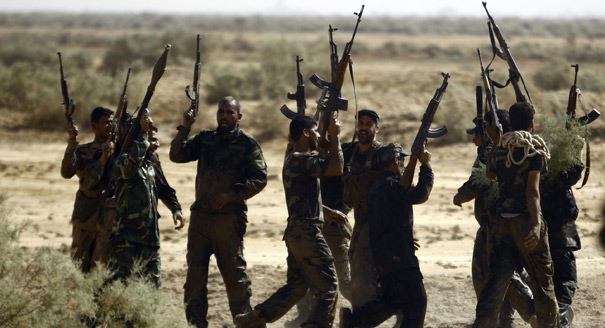Registration
You will receive an email confirming your registration.
The ongoing instability in the Middle East region has empowered a major shift in the paradigm of jihadist security threats. Previously, the primary security threats were seen to be global decentralized jihadist organizations such as al-Qaeda. However, today’s jihadist organizations have taken advantage of continued instability to make themselves into territorialized organizations, such as the Islamic State, which frequently cross established state borders. Any initiatives to combat and contain the threat of such groups must be on both a national and international level. Such initiatives must also include efforts to prevent the rise of homegrown radicals by adopting counter-radicalization strategies.
This conference brought together Arab and Western academics, policymakers, journalists, and representatives from non-governmental organizations to discuss the nature, role, and evolution of these transnational threats. Experts discussed the international, regional, and national responses in terms of security sector reforms and de-radicalization. This conference also tackled the political dimension of the conflict by addressing the role of the Arab and international actors in conflict resolution or evolution.
Agenda
9:00 - 9:15
Welcoming Remarks
9:15 - 10:30
From Mobile Warfare to War of Positions
This opening panel diagnoses how jihadism has shifted from global jihad (al-Qaeda) to territorialized jihad that crosses borders (the Islamic State, Egypt, Libya, Tunisia, Algeria). What is the role of paramilitary entities, terrorist organizations, and “resistance groups” in cross-border conflicts? How are those conflicts changing the behavior and position of those groups? How are paramilitary groups transforming into regular armies?
10:30 - 10:45
Break
The rest of the sessions will be about responses: regional, domestic, and international.
10:45 -12:15
Regional Security Cooperation Across Borders
How have countries responded to security threats that cross borders? What steps have been taken regarding arms control and stability in North Africa? Is there scope for a Gulf-wide security framework? What is the role of paramilitary groups like the peshmerga in Iraq, Turkey, and Syria in contested territories?
12:15 - 1:15
Lunch at the lobby, Novotel Hotel
1:15 - 2:30
Security Sector Reform
How can cooperation, trust, and coordination among the police, the army, and the National Guard be best supported? What can be learned from existing cases like the failure of security sector reform in Iraq compared with security sector reform within the Kurdistan Regional Government?
2:30 - 2:45
Break
2:45 - 4:15
New Paradigms of Counter-radicalization
This panel assesses Arab and Western de-radicalization programs and approaches. What are their potential and limitations in the current context? How can in-country counter-radicalization coalitions (including civil society, media, religious institutions, government, and local communities) be built?
4:15 - 4:30
Break
4:30 - 5:30
Closing Roundtable: The Need for Political Solutions
The political dimension of conflicts is at the heart of security threats. This roundtable addresses political group grievances and their impact on sectarianism and radicalization, as well the role of Arab and international actors (countries, NATO, and the UN) and policies in resolving or perpetuating conflict.
Speakers
Alaya Allani, historian and researcher, Manouba University
Usama Butt, founder and executive director, Institute for Islamic Strategic Affairs
Ahmed Driss, director, Center of Mediterranean and International Studies
Georges Fahmi, visiting scholar, Carnegie Middle East Center
Chehrazade Ben Hamida, vice-president, Tunisian Observatory for Global Security
Lina Khatib, director, Carnegie Middle East Center
Haydar El Khoei, associate fellow, Chatham House
Mohammed Masbah, nonresident scholar, Carnegie Middle East Center
Hamza Meddeb, nonresident scholar, Carnegie Middle East Center
Marc Pierini, visiting scholar, Carnegie Europe
Cheikh Mohammed Abdul Wahab Rafiki, deputy secretary general of the Renaissance and Virtue Party
Yezid Sayigh, senior associate, Carnegie Middle East Center
Lina Sinjab, regional editor for the Middle East, BBC News
Wladimir Van Wilgenburg, journalist, Al-Monitor, The Jamestown Foundation
